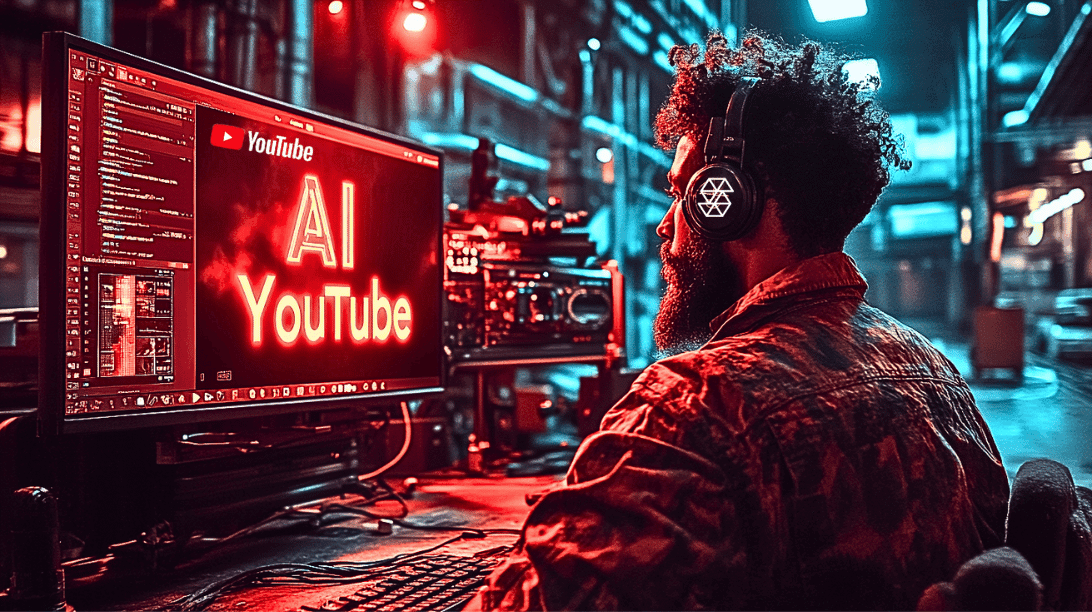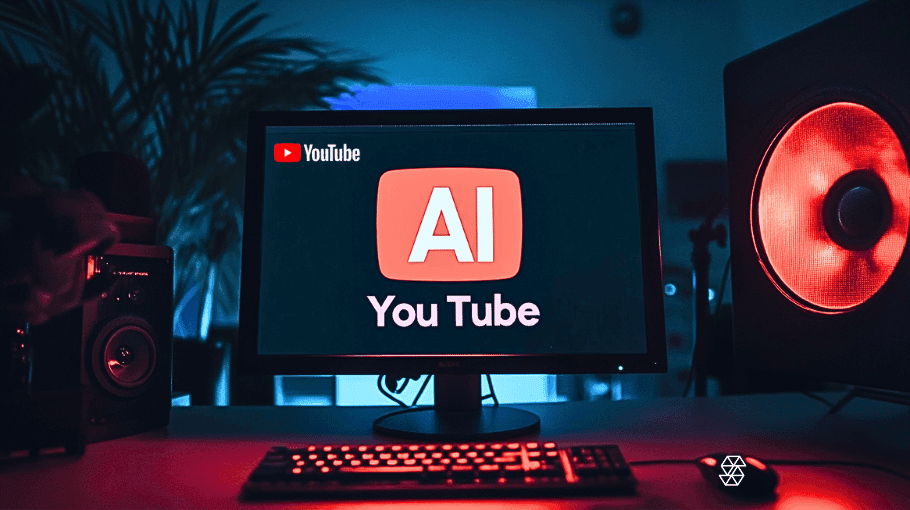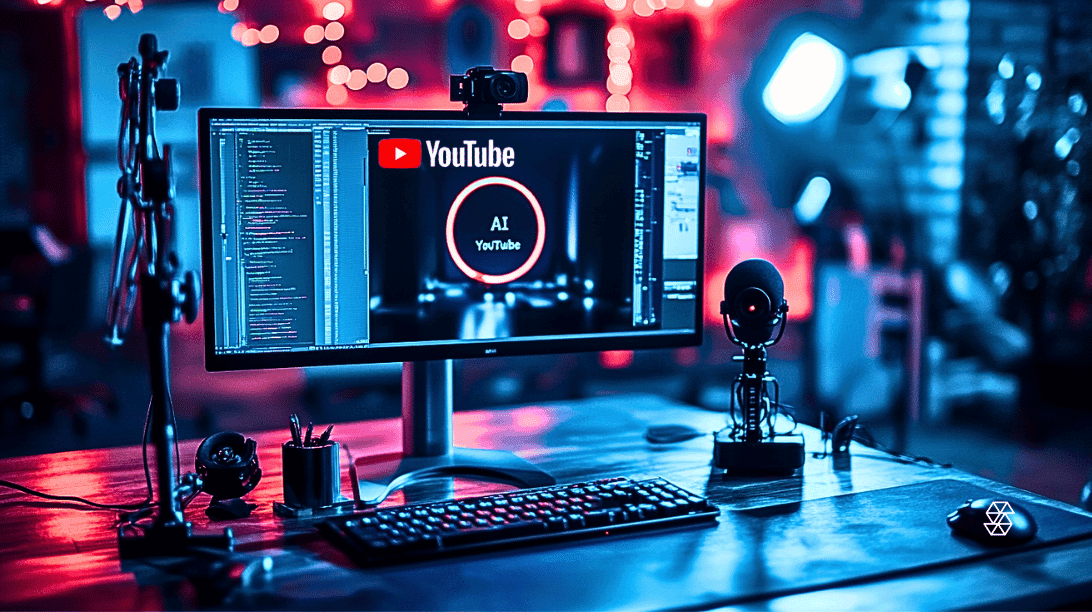AI&YOU #42: Valentine’s Day Special – AI Generated Influencers & OnlyFans + AI in Dating Apps
Stat of the Week: Half of U.S. mobile users use voice search every day.
In this week’s special Valentine’s Day edition, we are taking a look at the rise of AI influencers and models, whose emergence is pushing the boundaries of human-AI relationships.
We will be exploring some key themes from articles we published this week:
The Rise of AI Influencers and OnlyFans Models
AI and the Future of Dating
Why Someone You Know Will Fall in Love With an AI
- AI&YOU #42: Valentine’s Day Special – AI Influencers, OnlyFans, and Dating
- What are Virtual Influencers?
- The Emergence of Big-Name AI Influencers
- Most Popular Virtual Influencers Making Waves
- Impact on the Creator Economy
- Financial Implications and Market Dynamics of AI Influencers
- AI Models in Adult Entertainment and OnlyFans
- AI and the Future of Influencer Work
- AI and the Future of Dating
- AI’s Role in Finding Better Matches
- Why Someone You Know Will Fall in Love With an AI
- The Psychology Behind AI Relationships
AI&YOU #42: Valentine’s Day Special – AI Influencers, OnlyFans, and Dating
AI influencers, a new breed of virtual characters powered by generative AI, are swiftly carving their niche in the realms of social media marketing and online platforms. These virtual influencers, created and sustained by sophisticated AI tools, are blurring the lines between reality and digital creation, reshaping the landscape of influencer marketing.
As AI-generated influencers gain popularity, they are not just complementing but in some instances, overshadowing human influencers. With leading fashion brands and luxury labels increasingly collaborating with these digital personas, the impact of AI on the creator economy is undeniable. From Instagram to OnlyFans, AI influencers are redefining social media platforms, offering novel avenues for brand deals and advertising strategies.
What are Virtual Influencers?
Virtual influencers, digital creations powered by CGI, AI, and motion-capture technology, are redefining social media and marketing. Originating from early concepts like Kyoko Date in the 1990s, they have gained prominence due to recent technological advancements.
These entities simulate real influencers, sharing content and endorsing products with human-like traits. The intricate process of creating them involves 3D artistry for physical appearance, AI for personality traits, and motion-capture for realistic movements, catering to specific audience segments. Virtual influencers represent a unique blend of art and technology, paving new ways for digital interaction and brand representation.
Virtual influencers vary significantly in their design and purpose:
Fantastical Characters: These are non-human figures, often drawing from fantasy or mythology, offering brands a creative way to present their stories and products.
Stylized Humanoids: Representing a middle ground, these influencers are more akin to animated characters, boasting exaggerated human features and personalities.
Hyper-Realistic Figures: At the pinnacle of virtual influencer technology, these characters are almost indistinguishable from real people, often sparking debates about the nature of reality and authenticity on social media.
The Emergence of Big-Name AI Influencers
The digital age has witnessed the rise of popular virtual influencers, a groundbreaking development in the $250 billion creator economy. AI-generated personalities like Aitana López, Lil Miquela, and Noonoouri are not just digital marvels; they represent a significant shift in the dynamics of influencer marketing and social media platforms.

Most Popular Virtual Influencers Making Waves
Aitana López: This AI influencer, boasting over 243,000 Instagram followers, earns up to $11,000 a month. Collaborating with high-profile brands such as Victoria’s Secret and Olaplex, Aitana represents a new wave of virtual models that are gaining traction in the fashion industry.
Lil Miquela: As one of the earliest virtual influencers, Lil Miquela has secured deals worth six figures with luxury brands like Prada and Calvin Klein. She also collaborates with tech giants like Samsung and YouTube, showcasing the diverse potential of AI influencers in various sectors.
Noonoouri: With a following of over 400,000 on Instagram, Noonoouri has worked with Kim Kardashian’s cosmetic line, KKW Beauty, exemplifying the appeal of virtual influencers in the beauty industry.
Impact on the Creator Economy
These AI influencers are reshaping the creator economy, offering brands an innovative approach to social media marketing. Their digital nature provides a unique blend of cost-effectiveness and widespread visibility, factors crucial for brand strategies in today’s competitive market.
For instance, an Instagram ad featuring Kuki, another AI influencer, reached 11 times more people than a traditional ad, signifying a significant reduction in cost per engagement.
Financial Implications and Market Dynamics of AI Influencers
The emergence of AI influencers is significantly impacting the influencer marketing industry, traditionally ruled by human personalities. These virtual influencers, part of the $250 billion creator economy, are becoming financially powerful, earning substantial incomes from brand collaborations.
Companies are increasingly choosing AI influencers like Aitana López, Lil Miquela, and Noonoouri for their cost-effectiveness compared to human influencers. The controlled and predictable costs of AI influencers make them attractive to businesses, especially SMEs and startups, offering an efficient way to maximize marketing budgets. This trend signifies a key economic shift in marketing strategies, highlighting the growing relevance of AI in the influencer domain.

AI Models in Adult Entertainment and OnlyFans
The adult entertainment industry is also undergoing a digital revolution with the emergence of AI models on platforms like OnlyFans. Virtual influencers like Aitana López are making their mark in this realm, creating personalized content similar to human creators.
This trend is raising ethical and societal questions, particularly regarding its impact on societal perceptions of beauty and intimacy, as well as the future of human content creators in the industry.
The presence of AI models on platforms designed for human creators adds a new dimension to the industry, posing challenges in terms of job security for human models and the broader role of AI in replacing human roles. As AI continues to evolve, its influence in various sectors, including adult entertainment, highlights the need for careful consideration of ethical implications and the consequences for societal norms and human workers.
AI and the Future of Influencer Work
AI’s impact on employment in the modeling and influencer industries is a subject of significant debate. The fear of job displacement is real, as AI models gain traction, potentially replacing human models in some advertising and social media roles.
However, there’s also a counterargument that AI could create new job opportunities. Roles such as AI model developers, digital content strategists, and ethical compliance officers for AI-generated content are emerging.
Furthermore, AI influencers can complement human influencers, leading to collaborative efforts that leverage the strengths of both. For instance, AI tools can assist in content creation, allowing human influencers to focus on more personalized and creative aspects of their work.
While AI poses challenges to traditional employment structures in the influencer and modeling industries, it also opens avenues for innovation and new job roles. It’s crucial for the industry to adapt and evolve, ensuring a balanced integration of AI that benefits both businesses and human talent.

AI and the Future of Dating
The emergence of AI is also redefining how we find love and connect with others. Since the inception of platforms like Tinder, the online dating experience has predominantly centered around swift judgments and instant gratification. However, AI technology is now paving the way for a more nuanced approach, aiming to enhance the matchmaking process, enrich user experiences, and address inherent challenges in the digital dating realm.
From AI-powered dating apps, which tailor dating app profiles to individual preferences, to sophisticated algorithms designed to foster deeper connections, AI is steadily transforming the dynamics of dating app interactions.
AI’s Role in Finding Better Matches
By leveraging artificial intelligence, AI dating platforms are transforming the traditional matchmaking process, offering a more tailored and nuanced approach to finding compatible partners.
AI technology in a dating app like Iris Dating exemplifies this shift. Iris employs sophisticated algorithms to analyze users’ facial features, learning individual preferences to suggest matches that users might find physically attractive. This method not only streamlines the partner selection process but also enhances the likelihood of mutual attraction and connection.

Moreover, AI’s role extends to more scientific matching methods, such as DNA-based compatibility. Apps like DNA Romance are pushing the boundaries by linking DNA samples with personality types, offering a unique blend of science and technology in the quest for love.

The journey of AI in the realm of dating apps is an exciting one. From revolutionizing the matchmaking process to enhancing user experiences, AI is redefining the landscape of online dating.
To learn more, make sure to check out our full blog.

Why Someone You Know Will Fall in Love With an AI
The rise in emotional attachments to AI can be attributed to their seamless integration into our daily lives and the human tendency to anthropomorphize non-human entities. AI has evolved from a functional tool to a companion, capable of understanding preferences, anticipating needs, and engaging in meaningful conversations.
This evolution addresses the fundamental human desire for connection and understanding, making it increasingly likely for individuals to form emotional bonds with AI entities. As AI becomes more sophisticated in its interactions, the potential for emotional attachments grows, reflecting our inherent inclination to find connection and companionship.
The Psychology Behind AI Relationships
The psychology behind forming relationships with AI revolves around human needs for companionship, reliability, and non-judgmental interaction. In a digital age where isolation can be prevalent, AI offers a consistent and engaging presence, filling the void of companionship for many.
Unlike the unpredictable nature of human relationships, interactions with AI are reliable and predictable, offering a sense of stability. Additionally, AI’s non-judgmental and unbiased nature provides a safe space for self-expression, free from the fear of criticism or rejection. This aspect is particularly appealing to those who may have experienced negative social interactions, making AI a comforting and accepting companion.
To learn more about how AI is becoming indistinguishable from humans, check out our full blog.
Thank you for taking the time to read AI & YOU!
Are you a Founder, CEO, Venture Capitalist, or Investor seeking expert AI Advisory or Due Diligence services? Get the guidance you need to make informed decisions about your company’s AI product strategy or investment opportunities.
Book your free 15-minute Consultation today!
We build custom AI solutions for Venture Capital and Private Equity backed companies in the following industries: Medical Technology, News/Content Aggregation, Film & Photo Production, Educational Technology, Legal Technology, Fintech & Cryptocurrency.
For even more content on enterprise AI, including infographics, stats, how-to guides, articles, and videos, follow Skim AI on LinkedIn.






